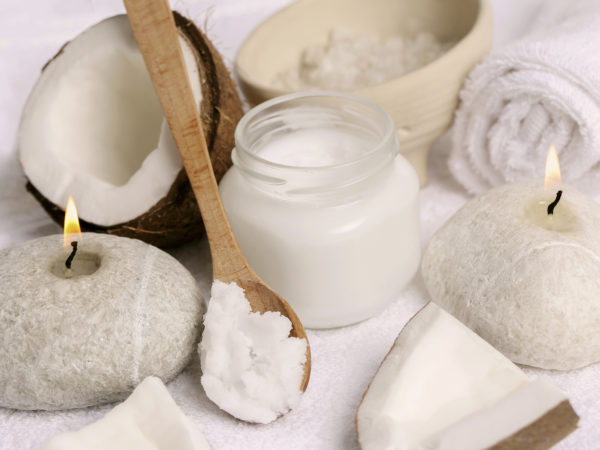Confused about Coconut Oil?
I just read in your article on “inflammatory responses” that coconut oil is one item to avoid. If I apply coconut oil to my skin to address dryness, can it make its way into my system and cause any problems?
Andrew Weil, M.D. | September 8, 2009

The reason I recommend avoiding coconut oil in the diet is because it is a highly saturated fat (it’s one of the few saturated fats that doesn’t come from animals). Like other saturated fats, coconut oil can raise cholesterol levels and, therefore, should play only a very limited role, if any, in your diet. In the past, coconut oil was widely used in movie popcorn, candy bars and commercial baked goods but has been phased out of many of these products because of consumer opposition to unhealthy tropical oils.
And incidentally, despite the ongoing internet buzz that coconut oil can promote weight loss, there’s no scientific evidence to back up those claims. Lauric acid, the main fatty acid found in coconut oil, has shown positive effects as an anti-viral agent in treating herpes, but all in all, I recommend avoiding dietary sources of coconut oil.
Using skin and hair products containing coconut oil is another story. Although I prefer skin care products with natural anti-inflammatory activity, coconut oil can be quite beneficial for the skin, and also can do good things for hair. Lauric acid is found in a wide variety of skin and hair care products including body and facial cleansers, soap and sunscreens. Some scientific research backs up the use of coconut oil and lauric acid in these products, and a number of studies has shown that coconut oil can help moisturize skin and treat skin infections.
Research also shows that it can prevent combing damage to hair. You can safely use coconut oil for cleansing, moisturizing and keeping hair healthy with no worries that it will get into your body and raise your cholesterol levels.
Andrew Weil, M.D.










